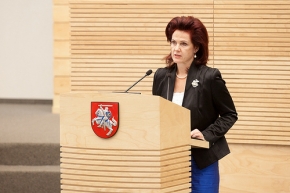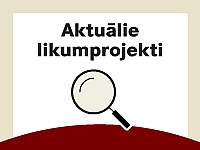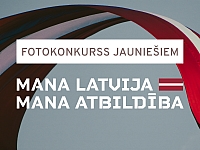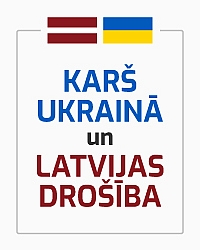 Galerija
Galerija
“Coordinated action and mutual support are needed not only on the Barricades or during the Singing Revolution. Our cooperation is necessary and meaningful in doing our everyday work, defending joint positions in the European Union or implementing yet another project that is beneficial for inhabitants of our border regions,” said Solvita Āboltiņa, Speaker of the Saeima, on Friday, 9 November, when addressing the parliamentarians of Latvia, Lithuania and Estonia at the 31st Session of the Baltic Assembly held in Vilnius, Lithuania, from 8 to 9 November.
The Speaker of the Saeima emphasised to the participants of the Session that the Baltic States are interested in a viable European Union. While acknowledging that this geopolitical region is experiencing not only a financial, economic and debt crisis but also a political one, Āboltiņa called on the participants for joint efforts in order to find a framework for the future development of the EU: “We are negotiating on core issues such as the banking union, reviewing the founding treaties, a two-speed Europe and even a federation of sovereign states. Not all of these proposals are in line with our interests, but we have to act jointly in order to make sure that our generation does not lose in a couple of years what three previous generations have carefully built during more than sixty years.”
Negotiations on the next EU’s multiannual financial framework are coming to an end, and much has been done to convince the other member states that it is unacceptable to have such an unfair distribution of direct payments to farmers and that the cohesion funding is an important tool for further growth, pointed out Āboltiņa. She emphasised that “we do not know yet whether we will win this battle because the general background for it is not favourable; nevertheless, it is commendable that on this matter we took coordinated action”.
Āboltiņa mentioned science, research, technologies and innovations as the most promising areas for future cooperation among the Baltic States. “Development of these areas requires major investments which are difficult for each country to secure alone. This is why I call on the Baltic Assembly to encourage the governments to establish a working group for forming a joint Baltic research, technology and innovation infrastructure within the framework of the BIRTI project,” indicated the Speaker of the Saeima. She added that by successfully implementing this cooperation model, we will invest in our development, and raise the region’s competitiveness to a new level.
Āboltiņa was certain that the Baltic States will successfully cooperate in the framework of the upcoming presidencies of the Council of the European Union. “Lithuania will be the first of the Baltic States to undertake this task next year. Latvia will follow in 2015, and Estonia in 2018. In Latvia, we have begun to draft national priorities of the presidency. Public consultations have already taken place, and one of their conclusions was that the Baltic States have to ensure mutual coordination of priorities and continuity in monitoring their implementation. Experience shows that regional coordination ensures more efficient ways to achieve progress in areas where interests of the region’s countries overlap.” Āboltiņa said that all the advantages afforded by the Baltic Assembly must be employed to attain this goal.
Looking back at the achievements of the Baltic Assembly, Āboltiņa indicated that “recently, alongside the political dimension, we have also tried to provide for the people of our countries some tangible results from the work of this organisation. One of the latest achievements is the fact that specific projects in the health care are being implemented”.
It is also important to continue building on the foundations laid in cooperation with our partners – the Nordic Council, the Benelux Parliament, the GUAM Parliamentary Assembly and the Visegrád Group, underlined Āboltiņa, adding that “each of these cooperation formats has its significance and added value. Our task is to find the right time and circumstances for increasing the momentum of this process. For example, I think that issues such as the future of Europe or the multiannual financial framework require more active cooperation with the Visegrád Group”.
In her address to the Baltic Assembly, Āboltiņa also stated that the political dimension of the Baltic Assembly has not lost its relevance and that we should carefully follow the progress of the region’s strategic projects on energy and infrastructure. “In this context, we are interested in the position of the Lithuanian government with regard to the Visaginas nuclear power plant, taking into account the unfavourable outcome of the recent referendum,” she said.
As to the benefits shared by all three Baltic States, the Speaker of the Saeima stated: “When we regained independence, we were united by a shared vision of our future and joint aspirations towards joining European and transatlantic family of nations. For eight years, we have been full-fledged members of this community. We have a shared feeling of security thanks to NATO’s air-policing mission in the Baltic States. We all benefit from the infrastructure investments of the EU’s funds. Our young people have an opportunity to freely travel and study abroad, which is something we could only dream of when we were young”.
In conclusion, the Speaker of the Saeima thanked her Lithuanian colleagues for their successful presidency of the Baltic Assembly and wished all the best to the newly elected members of the Lithuanian parliament. “All elected representatives of the people assume the responsibility of doing their best in order to enhance the security of their countries and the prosperity of their people. With selfless devotion, well-considered decisions, mutual support and efforts oriented towards increase of prosperity of our citizens, we will be powerful enough to ensure that also during next decades, the people of the Baltic States live in a flourishing Europe in peace and harmony and enjoy the rights and freedoms of democratically developed countries,” Āboltiņa said.
The Baltic Assembly is an inter-parliamentary cooperation organisation of Latvia, Estonia and Lithuania established on 8 November 1991. Each national parliament of the Baltic States is represented in the Baltic Assembly by 12 to 20 members of parliament. It is a coordinating and consultative organisation which has a right to express its opinion to the national parliaments and governments of the Baltic States, as well as the Baltic Council of Ministers in the form of resolutions, decisions, declarations and recommendations; it also has a right to request the above-mentioned bodies to provide information on cross-border issues that are high on the Baltic Assembly’s agenda.
Photos from the event are available at: https://www.flickr.com/photos/saeima/sets/72157631962056489/with/8169045254/










